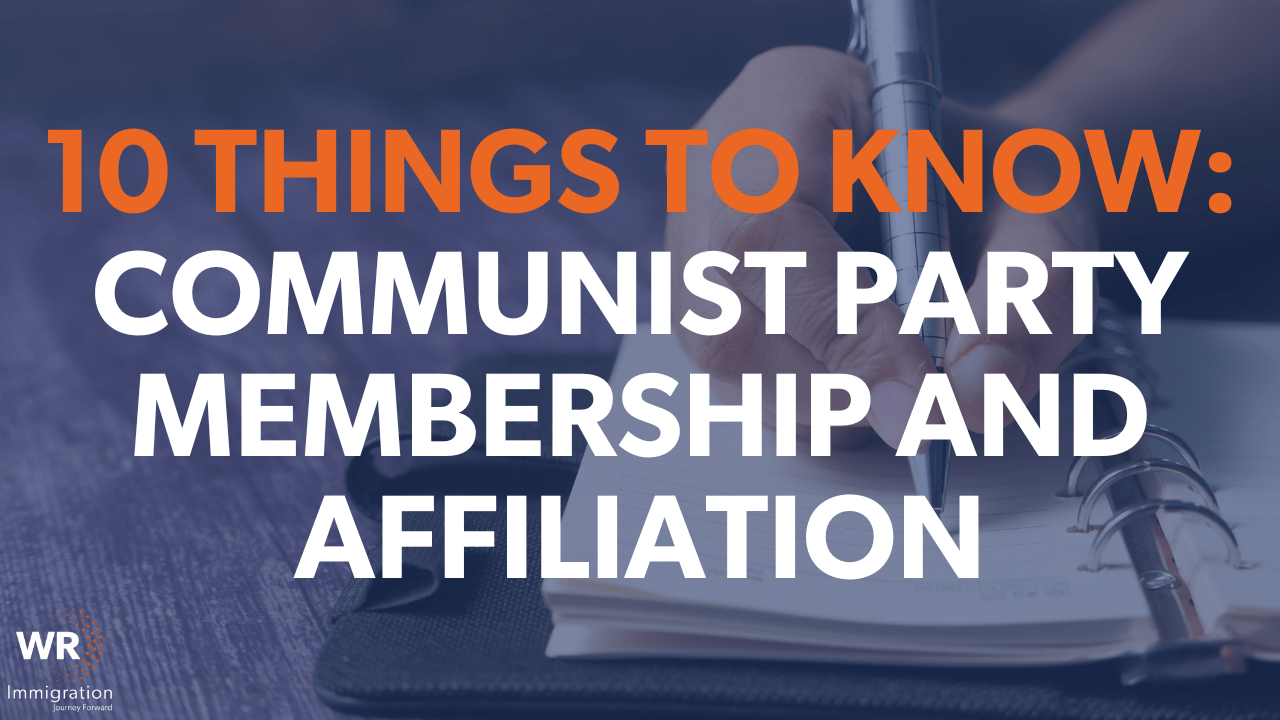The U.S. Department of State has significantly revised the Foreign Affairs Manual which provides guidance to consular officials to implement a stricter interpretation of the law which bars immigrant visa issuance to members and affiliates of the Communist Party or any totalitarian party. Here are ten key changes.
1. No More “Nonmeaningful” Membership Exception
The new guidance eliminates prior recognition of the case which exempted immigrants whose party affiliation was devoid of political intent. Consular officers now presume membership is intentional and ideologically aligned.
2. “Socialist” Parties Now Covered
The guidance broadens the definition of a communist “affiliate” to include socialist parties that advocate state ownership or collectivist policies such as Venezuela’s United Socialist Party and Korea’s Workers’ Party. Persons affiliated with such parties are now inadmissible unless an exception applies.
3. Ideological Support Alone May Constitute “Affiliation”
The new rule eliminates the requirement of positive action for “affiliation” and advocacy for, solidarity with, or endorsement of communist ideology may now suffice for inadmissibility, even if the applicant has never provided material support or joined a party.
4. Employment in Communist or State-Controlled Institutions Is Now “Affiliation”
The updated guidance presumes that employment in communist government positions, state-owned enterprises (SOEs), or quasi-governmental institutions in communist countries generally constitutes affiliation—particularly if roles are at the executive level or carry political influence. No clear definition is provided for “executive-level,” creating interpretive uncertainty.
5. Military and Non-Government Organization (NGO) Roles Covered
Service in a communist military, especially in higher ranks, is now definitively treated as party affiliation. Employment with NGOs or similar entities in communist regimes can lead to a finding of affiliation if those entities are tools of the party’s political apparatus.
6. Tighter Standards for “Essentials of Living” Exception
The new guidance narrowly defines “essentials of living” as resources minimally available to the general population (e.g., subsistence food, basic jobs). Those who joined the party for upward mobility or professional advancement may no longer qualify for the exception.
7. Prior Service Passport Now Suggests Affiliation
Possession of a diplomatic, official, or service passport issued by a communist regime now “suggests” party affiliation. This creates a presumption of inadmissibility unless disproved.
8. Statutory Exceptions Still Apply—But are Harder to Prove
The statute still allows exceptions for:
- Involuntary membership (e.g., under duress)
- Past membership terminated more than 2 years ago if country no longer or more than 5 years ago if still in power.
- Close family of U.S. citizens or LPRs, in the public interest
The new guidance limits the standards for these exceptions.
9. Revocation of Favorable Precedent
By removing favorable interpretations and limiting discretion, the new rules reverses decades of precedent and narrowly designed exceptions. This is a major policy shift.
10. Practical Implications for Chinese, Venezuelan, and Other Nationals
Foreign nationals from countries with single-party regimes such as China, Vietnam, Cuba, and Venezuela are now subject to this higher standard. Persons previously admitted may now face issues unless they meet one of the exceptions or receive a waiver.
Conclusion
The revised guidance expands the grounds of inadmissibility and there is very little discretion. Persons seeking to enter the U.S. need to be aware that certain past affiliations, ideological statements, employment history or passport type may render them inadmissible unless they have clear evidence proving they meet the limited exceptions. Persons seeking admission as nonimmigrants or even as resident aliens (green card holders) need to ensure they have legal evidence proving their admissibility.


